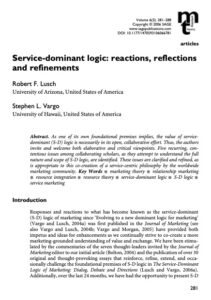Grönroos, C. (2008)
Welcome to the Library
Hello. Why don’t you pull up one of those nice comfy chairs. Go on, settle yourself down in front of the crackling fire, with a good cup of tea (or coffee, or something stronger, the choice is yours).
This is my virtual library where I list the books and articles that have sparked my interest and thoughts. I’m not intending to give a detailed review of these books. Rather, just to highlight points of interest.
If you’re looking for the list of references, then you should try here.
I hope you find the items in the library as interesting and thought inspiring as I have! If you’ve got any comments or suggestions of other books and articles, please let me know!
Fundin, A., Witell, L., Gebauer, H. (2012)
Saarijärvi, H., Puustinen, P., Yrjölä, M., Mäenpää, K. (2017)
great overview of similarities and differences between Service-Dominant Logic and Service Logic Useufl diagram on the historical developments; plus table on complimentary/conflicts between the two logics for various definitions.
Vargo, S. L., Lush, R. (2008)
Lush, R., Vargo, S. L. (2014)
Lush, R., Vargo, S. L. (2006)
Vargo, S. L., Lusch, R. (2006)
Lovelock, C., Wirtz, J. (2016)
Palmer, A. Cole, C. (1995)







